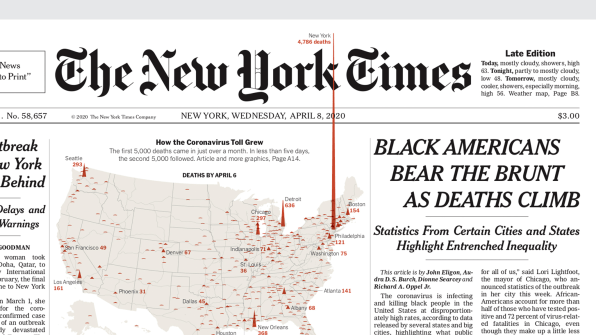 New York Times article, Wednesday April 8th, 2020
New York Times article, Wednesday April 8th, 2020

In recent years, computational thinking skills have increasingly been recognised around the world as an important part the curriculum. Algorithms are a key component of computational thinking, and the foundations for developing these skills starts in the early years.
In Finland, algorithmic thinking is a compulsory cross-curricular activity starting in Grade 1, and various projects and initiatives focused on developing computational thinking skills have been introduced to pre- and primary schools in Singapore (Seow et al, 2019). In Indonesia, a Google-backed program is working on training up thousands of teachers in computational thinking (Jusuf, 2020).
Researchers in the US are investigating the development of young children’s computational thinking skills and dispositions. Professor Joohi Lee and colleagues at the University of Texas at Arlington say although algorithm design is ‘the most critical computational thinking component’, the concept hasn’t featured much in early childhood literature.
The researchers have been scaffolding the development of algorithm design skills using ‘unplugged activities’ connected to everyday life. As the term suggests, ‘unplugged’ activities don’t require technology. Writing in the journal Contemporary Issues in Early Childhood, they share some practical activities and tips to help teachers promote algorithm design skills in the early years.
‘To help children become more logical problem-solvers in an increasingly digital world, more work is needed to develop explicit algorithm designs and computational thinking activities for early childhood classrooms,’ they argue.
An algorithm is a step-by-step solution to a problem. The researchers explain the other major skills in computational thinking are: decomposition (breaking something like a problem or a system down into smaller parts); pattern recognition (looking for patterns and similarities); and abstraction (focusing on the important information).
Commenting on the relevance to young children, Professor Lee and her co-authors write: ‘Algorithm design is often associated with computer science and upper-level mathematics. However, algorithms are often present in early childhood and elementary classrooms,’ adding teachers may already be implementing them without knowing it.
They point to research showing algorithm design skills are associated with children’s advanced ability to regulate, control and evaluate their own actions.
https://www.teachermagazine.com/sea_en/articles/integrating-algorithm-tasks-into-early-years-teaching accessed Thursday March 10th